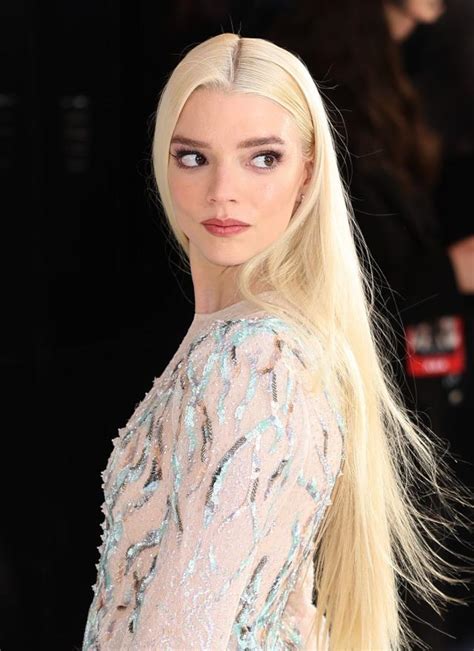
Helen Mirren’s candid reflections on aging and beauty, particularly her assertion that “None of us are beautiful,” have sparked a significant conversation within the entertainment industry, resonating with fellow actresses Kathy Bates and Keri Russell, among others, and prompting widespread discussion about societal beauty standards and self-perception.
Dame Helen Mirren’s recent interview has ignited a firestorm of discussion regarding beauty standards, aging, and self-perception, particularly among women in the entertainment industry. Her blunt statement, “None of us are beautiful,” delivered with her characteristic candor, has resonated deeply with actresses like Kathy Bates and Keri Russell, prompting them and countless others to reflect on the pressures and expectations placed upon women, especially as they age. Mirren’s remarks challenge the conventional notion of beauty and invite a broader, more inclusive understanding of attractiveness and self-worth.
Mirren’s perspective, articulated during various interviews, suggests that the concept of beauty is often manufactured and unsustainable, particularly within the context of Hollywood’s relentless pursuit of youth and physical perfection. She argues that genuine beauty lies in character, experience, and inner strength, qualities that deepen with age, rather than fading away. This stance represents a powerful counter-narrative to the pervasive imagery and messaging that dominate popular culture, often promoting unrealistic and unattainable beauty ideals.
Kathy Bates, known for her powerful performances and unwavering authenticity, has openly expressed her admiration for Mirren’s perspective. Bates has been a vocal advocate for body positivity and self-acceptance throughout her career, often challenging the industry’s narrow definition of beauty. Her support for Mirren’s message underscores the shared frustration among many actresses who feel pressured to conform to unrealistic standards, regardless of their age or talent. Bates’ own experiences navigating the industry, facing both triumphs and tribulations related to her appearance, lend significant weight to her endorsement of Mirren’s views.
Keri Russell, another respected actress recognized for her talent and poise, has also echoed Mirren’s sentiments, further amplifying the conversation. Russell’s comments highlight the insidious nature of societal expectations, which often lead women to internalize negative self-perceptions and constantly strive for an unattainable ideal. Her willingness to engage with Mirren’s message publicly demonstrates a growing awareness and desire to challenge these harmful norms. Russell’s perspective is particularly relevant given her position as a role model for younger generations of actresses, who are increasingly exposed to the pressures of social media and the relentless scrutiny of online culture.
The impact of Mirren’s statement extends far beyond the entertainment industry, sparking conversations among women from all walks of life. Many have expressed relief and gratitude for her willingness to speak candidly about a topic that is often shrouded in secrecy and shame. The pressure to maintain a youthful appearance and conform to societal beauty standards is a universal experience for women, regardless of their profession or social status. Mirren’s remarks provide a much-needed validation of the feelings of inadequacy and anxiety that many women experience as they age.
The conversation initiated by Mirren also raises important questions about the role of media in shaping perceptions of beauty and aging. The constant barrage of images depicting flawless, often digitally enhanced, faces and bodies creates an unrealistic standard that is impossible for most women to achieve. This relentless focus on physical appearance can have detrimental effects on self-esteem and mental health, leading to feelings of anxiety, depression, and body dysmorphia.
Moreover, the industry’s tendency to marginalize older women and prioritize youth reinforces the message that a woman’s value is primarily determined by her physical appearance. This ageism is not only unfair but also deeply damaging, as it deprives society of the wisdom, experience, and talent that older women have to offer. Mirren’s outspokenness challenges this ageism and advocates for a more inclusive and respectful representation of women of all ages.
Mirren’s perspective aligns with a growing movement towards body positivity and self-acceptance. This movement encourages women to embrace their natural beauty, regardless of their age, size, or skin tone. It challenges the narrow definition of beauty that has long dominated popular culture and promotes a more inclusive and diverse representation of female beauty. The support for Mirren’s message from actresses like Bates and Russell reflects a broader shift in attitudes towards beauty and aging, as more women are speaking out against unrealistic standards and advocating for self-acceptance.
Furthermore, Mirren’s comments shed light on the often-overlooked emotional toll of maintaining a certain image in the public eye. Actresses are constantly subjected to scrutiny and criticism, their appearance dissected and judged by millions of people. This constant pressure can lead to feelings of anxiety, insecurity, and self-doubt. Mirren’s willingness to acknowledge these challenges and speak openly about her own experiences provides a valuable source of support and validation for other actresses who may be struggling with similar issues.
In conclusion, Helen Mirren’s bold take on beauty has sparked a crucial conversation about societal expectations, aging, and self-perception. Her message, amplified by the support of Kathy Bates, Keri Russell, and countless others, challenges the conventional notion of beauty and advocates for a more inclusive and respectful representation of women of all ages. This conversation is a vital step towards creating a more accepting and supportive environment for women, both within the entertainment industry and beyond.
Expanded Analysis:
To fully grasp the significance of Helen Mirren’s statement, it’s crucial to understand the historical and cultural context surrounding beauty standards, particularly in Hollywood. For decades, the entertainment industry has perpetuated a narrow and often unattainable ideal of female beauty, characterized by youthfulness, thinness, and a specific set of physical features. This ideal has been reinforced through media portrayals, marketing campaigns, and the constant pressure on actresses to maintain a certain image.
This relentless pursuit of physical perfection has had a profound impact on women’s self-esteem and mental health. Studies have shown that exposure to idealized images of beauty can lead to feelings of anxiety, depression, and body dissatisfaction. Many women feel compelled to undergo cosmetic procedures, engage in restrictive dieting, and spend excessive amounts of time and money trying to conform to these unrealistic standards.
The pressure to maintain a youthful appearance is particularly acute for actresses, who often face ageism and are routinely replaced by younger women as they age. This ageism is not only unfair but also limits the representation of older women in the media, further reinforcing the message that their value diminishes with age.
Helen Mirren’s outspokenness challenges this status quo and advocates for a more inclusive and respectful representation of women of all ages. Her message resonates with a growing movement towards body positivity and self-acceptance, which encourages women to embrace their natural beauty and reject the narrow definition of beauty that has long dominated popular culture.
The support for Mirren’s message from actresses like Kathy Bates and Keri Russell reflects a broader shift in attitudes towards beauty and aging within the entertainment industry. More actresses are speaking out against unrealistic standards and advocating for greater diversity and representation. This shift is driven by a growing awareness of the harmful effects of these standards and a desire to create a more accepting and supportive environment for women.
Moreover, Mirren’s comments shed light on the often-overlooked emotional toll of maintaining a certain image in the public eye. Actresses are constantly subjected to scrutiny and criticism, their appearance dissected and judged by millions of people. This constant pressure can lead to feelings of anxiety, insecurity, and self-doubt. Mirren’s willingness to acknowledge these challenges and speak openly about her own experiences provides a valuable source of support and validation for other actresses who may be struggling with similar issues.
The conversation initiated by Mirren also raises important questions about the role of media in shaping perceptions of beauty and aging. The constant barrage of images depicting flawless, often digitally enhanced, faces and bodies creates an unrealistic standard that is impossible for most women to achieve. This relentless focus on physical appearance can have detrimental effects on self-esteem and mental health, leading to feelings of anxiety, depression, and body dysmorphia.
The media has a responsibility to promote a more diverse and realistic representation of women, showcasing individuals of all ages, sizes, and ethnicities. This includes challenging the ageism that is prevalent in the entertainment industry and creating more opportunities for older women to be seen and heard.
Ultimately, the conversation sparked by Helen Mirren is a call for a fundamental shift in how society views beauty and aging. It is a call for greater inclusivity, acceptance, and respect for women of all ages. It is a call to challenge the unrealistic standards that have long dominated popular culture and to embrace a more diverse and authentic representation of female beauty. This shift is essential for creating a more equitable and supportive environment for women, both within the entertainment industry and beyond. The path forward involves promoting body positivity, celebrating diversity, and challenging ageism in all its forms. It requires a collective effort from individuals, media outlets, and the entertainment industry to create a more inclusive and empowering culture for women of all ages.
Mirren’s influence extends beyond her acting career; she has become a vocal advocate for women’s rights and gender equality. Her willingness to speak out on these issues has made her a role model for women around the world. She consistently uses her platform to challenge societal norms and advocate for a more just and equitable society.
The Broader Cultural Impact:
The discussion surrounding Helen Mirren’s statements has resonated far beyond Hollywood, sparking conversations in various sectors of society. This is because the issues she raises are universal and touch upon the experiences of women in all walks of life. The pressure to conform to unrealistic beauty standards affects women regardless of their age, profession, or social status.
The impact of this pressure can be seen in the rising rates of body dissatisfaction, eating disorders, and anxiety among women. Many women feel compelled to spend excessive amounts of time and money on beauty products and procedures in an attempt to meet these unrealistic standards.
The conversation initiated by Mirren has encouraged women to question these standards and to challenge the messages that they receive from the media and society. It has empowered them to embrace their natural beauty and to reject the pressure to conform to a narrow definition of attractiveness.
This shift in attitudes has also had a positive impact on the beauty industry, as companies are increasingly responding to the demand for more inclusive and diverse products and marketing campaigns. There is a growing trend towards celebrating natural beauty and embracing diversity in advertising.
The conversation about beauty and aging is not just about individual self-esteem; it is also about social justice. The pressure to conform to unrealistic beauty standards perpetuates harmful stereotypes and reinforces inequalities. By challenging these standards, we can create a more equitable and just society for all women.
FAQ Section:
1. What was Helen Mirren’s controversial statement about beauty?
Helen Mirren stated, “None of us are beautiful,” during an interview, challenging conventional beauty standards and prompting discussions about aging and self-perception.
2. Who else in the entertainment industry has responded to Mirren’s statement?
Actresses Kathy Bates and Keri Russell have voiced their support for Mirren’s sentiments, echoing her concerns about the pressures women face to conform to unrealistic beauty standards.
3. Why is Mirren’s statement considered significant?
Mirren’s statement is significant because it challenges the prevalent notion that beauty is solely defined by youth and physical appearance. It encourages a broader understanding of beauty that encompasses character, experience, and inner strength. It also challenges ageism within the entertainment industry.
4. How does the media contribute to the problem of unrealistic beauty standards?
The media often portrays flawless, digitally enhanced images of women, creating an unrealistic standard that is impossible for most to achieve. This can lead to feelings of anxiety, depression, and body dysmorphia.
5. What is the broader impact of Mirren’s message on society?
Mirren’s message has sparked conversations among women from all walks of life, encouraging them to question societal beauty standards and embrace their natural beauty. It aligns with the body positivity movement and promotes a more inclusive and respectful representation of women of all ages.
The ripples of this discussion are expected to continue, influencing societal attitudes and potentially shaping a more inclusive and accepting future for women in entertainment and beyond. The key takeaway is a call for authenticity, self-acceptance, and a redefinition of beauty that values inner qualities over fleeting physical appearances. The conversation serves as a crucial reminder that women’s worth should not be tied to their adherence to unrealistic and often unattainable beauty standards. It encourages a more empathetic and understanding approach to aging and beauty, recognizing that true beauty lies in the unique experiences, character, and inner strength of each individual. As more voices join the conversation, the potential for lasting change increases, paving the way for a future where women are celebrated for their individuality and inherent worth, rather than judged by arbitrary and superficial standards. The conversation initiated by Helen Mirren’s statement is especially timely considering the increasing scrutiny and pressure faced by individuals in the digital age. Social media platforms, while offering opportunities for connection and self-expression, also contribute to the perpetuation of unrealistic beauty standards. Filters and editing tools allow users to alter their appearance, creating a culture of comparison and self-doubt. The constant exposure to curated images can lead to feelings of inadequacy and a distorted perception of reality.
Mirren’s message serves as a powerful antidote to this digital pressure, reminding individuals to prioritize authenticity and self-acceptance over the pursuit of an unattainable ideal. It encourages a more mindful approach to social media, urging users to be critical of the images they consume and to focus on celebrating their unique qualities rather than striving to conform to unrealistic standards.
Furthermore, the conversation surrounding beauty and aging is particularly relevant in light of the growing aging population. As people live longer, it is essential to challenge ageist stereotypes and to promote a more positive and inclusive view of aging. Older women, in particular, are often marginalized and underrepresented in the media, reinforcing the message that their value diminishes with age.
Mirren’s outspokenness challenges this ageism and advocates for a more respectful and appreciative view of older women. She encourages society to recognize the wisdom, experience, and talent that older women have to offer and to create more opportunities for them to be seen and heard. This includes challenging ageist hiring practices in the entertainment industry and creating more roles for older actresses.
Ultimately, the conversation sparked by Helen Mirren is a call for a fundamental shift in how society views beauty, aging, and women in general. It is a call for greater inclusivity, acceptance, and respect. It is a call to challenge the unrealistic standards that have long dominated popular culture and to embrace a more diverse and authentic representation of female beauty. This shift is essential for creating a more equitable and supportive environment for women of all ages, both within the entertainment industry and beyond.
The emphasis on inner qualities over external appearances is also a crucial aspect of Mirren’s message. She underscores that true beauty lies in character, intelligence, kindness, and resilience – qualities that deepen with age and experience. This perspective challenges the superficiality that often pervades popular culture and encourages individuals to focus on developing their inner selves rather than obsessing over their physical appearance.
The conversation initiated by Mirren also highlights the importance of role models. By speaking out against unrealistic beauty standards, she has become a powerful role model for women of all ages. Her willingness to be authentic and vulnerable inspires others to embrace their own imperfections and to challenge the messages that they receive from society.
In addition to challenging beauty standards, Mirren’s statement also raises important questions about the role of the media in shaping perceptions of aging. The media often portrays aging as something to be feared and avoided, promoting products and procedures that promise to reverse the signs of aging. This negative portrayal of aging can lead to feelings of anxiety and depression among older individuals.
A more positive and realistic representation of aging would celebrate the wisdom, experience, and resilience that come with age. It would also challenge the stereotypes that often portray older people as frail, incompetent, and out of touch.
The conversation sparked by Helen Mirren is a valuable opportunity to re-evaluate our attitudes towards beauty, aging, and women in general. By challenging unrealistic standards, promoting inclusivity, and celebrating inner qualities, we can create a more equitable and supportive environment for all.
Further Points to Consider:
- The impact of social media on self-esteem and body image.
- The role of advertising in perpetuating unrealistic beauty standards.
- The cultural differences in perceptions of beauty and aging.
- The importance of self-care and mental well-being.
- The benefits of embracing diversity and celebrating individuality.
- The power of positive role models.
- The need for more inclusive representation in the media.
- The importance of challenging ageism and promoting intergenerational understanding.
- The role of education in promoting body positivity and self-acceptance.
- The impact of societal expectations on women’s health and well-being.
- The connection between beauty standards and social justice.
- The potential for technology to be used to promote more positive and inclusive representations of beauty.
- The importance of supporting organizations that are working to challenge unrealistic beauty standards.
- The role of individuals in promoting positive change.
- The long-term impact of the conversation sparked by Helen Mirren.
- The global implications of the issues raised by Mirren’s statement.
- The intersectionality of beauty standards with other forms of discrimination.
- The importance of creating a culture of empathy and understanding.
- The need for ongoing dialogue and action to address these issues.
- The empowerment that comes from challenging societal norms.
In conclusion, Helen Mirren’s candid remarks have ignited a crucial dialogue that extends far beyond the realm of celebrity and entertainment. Her challenge to conventional beauty standards, coupled with her call for self-acceptance and a redefinition of beauty that values inner qualities, resonates deeply with women across diverse backgrounds and experiences. The ensuing conversation, amplified by the voices of Kathy Bates, Keri Russell, and countless others, serves as a powerful catalyst for change. It compels us to critically examine the messages we receive from the media, challenge ageist stereotypes, and embrace a more inclusive and empowering vision of beauty that celebrates individuality, resilience, and the inherent worth of every woman. The journey towards a more equitable and supportive society requires ongoing dialogue, collective action, and a steadfast commitment to dismantling the harmful norms that perpetuate unrealistic beauty standards. Only then can we create a world where women are valued for their unique qualities and celebrated for their authentic selves, regardless of age, appearance, or any other arbitrary measure. The conversation spearheaded by Helen Mirren is a vital step in that direction, paving the way for a future where true beauty is defined not by superficiality, but by the depth and richness of the human spirit.
The continued conversation initiated by Mirren also offers opportunities to examine the economic aspects of beauty standards. The beauty industry thrives on perpetuating insecurities and creating a constant demand for products and procedures that promise to enhance appearance. This multi-billion dollar industry often preys on vulnerable individuals, profiting from their anxieties and insecurities.
Challenging unrealistic beauty standards can therefore have a significant economic impact, reducing the demand for harmful or unnecessary products and empowering individuals to make more informed and conscious choices about their spending habits. This can lead to a shift in the beauty industry towards more sustainable and ethical practices, focusing on products that promote health and well-being rather than simply conforming to fleeting trends.
The emphasis on self-acceptance and inner qualities can also have a positive impact on mental health. By shifting the focus away from external appearance and towards internal strengths, individuals can develop a stronger sense of self-worth and resilience. This can reduce the risk of anxiety, depression, and other mental health issues that are often associated with body dissatisfaction and the pressure to conform to unrealistic beauty standards.
Furthermore, the conversation initiated by Mirren highlights the importance of promoting diversity and inclusivity in all aspects of society. This includes challenging stereotypes about race, ethnicity, gender identity, sexual orientation, and disability. By creating a more inclusive society, we can reduce the pressure on individuals to conform to narrow and restrictive beauty standards and create a more welcoming and supportive environment for all.
The conversation initiated by Helen Mirren is not just about beauty; it is about empowerment, equality, and social justice. It is about creating a world where all individuals are valued for their unique qualities and given the opportunity to thrive, regardless of their appearance. This requires a collective effort from individuals, media outlets, businesses, and policymakers to challenge harmful norms and promote a more inclusive and equitable vision of beauty.
The legacy of this conversation will depend on our willingness to continue challenging unrealistic standards, promoting self-acceptance, and advocating for a more just and equitable society for all women. The journey is ongoing, but the potential for positive change is immense.









